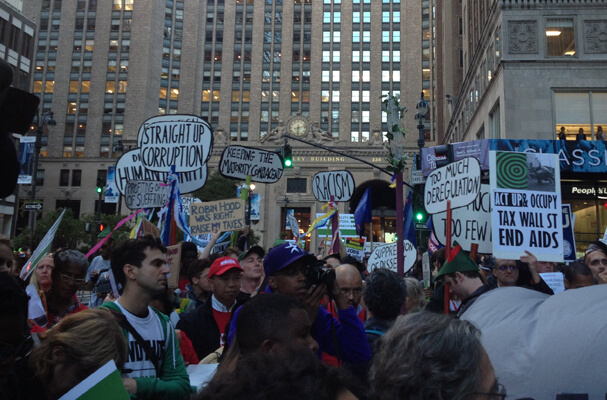Out lesbian Assemblymember Deborah Glick of Manhattan is said to be pushing back against an 11th-hour push to legalize gestational surrogacy in New York, angering the Stonewall Democratic Club of New York City and others in the community just months after she told that club she supported the measure.
Glick, who did not return multiple phone calls for this story, landed the endorsement of Stonewall in her re-election bid last year after telling the club in a questionnaire that she supported legalizing gestational surrogacy.
But she remained tight-lipped when reached by Gay City News on June 10 about her position on the bill, saying that she would need to call back, though she never did. She did not respond to multiple requests for comment at the time, but two days later told The New York Times — which reaches a broader audience — that gestational surrogacy amounts to “pregnancy for a fee, and I find that commodification of women troubling.”
The bill, which has been increasingly shrouded in controversy over women’s rights issues, now faces gloomy prospects in the lower chamber. Stonewall’s president, Rod Townsend, expressed disappointment over Glick’s apparent about-face and the bill’s loss of momentum after he expected it to pass this year.
“It’s been on our endorsement surveys for years and going back to 2014, no one seeking our endorsement has supported keeping the ban on the books,” Townsend told Gay City News. “To hear that Assemblymember Deborah Glick, a champion and member of our community, has reversed her stated support on the issue is a shock to our members.”
He continued, “Folks want to start their families without having to leave the state and jump through legal hurdles. We know and admire the assemblymember, and we feel betrayed.”
The bill cleared the State Senate under the leadership of out gay State Senator Brad Hoylman of Manhattan, who championed the measure in the upper chamber and issued emotional pleas for the legislation by sharing stories and photos of his own experience having two daughters through gestational surrogacy.
The issue heated up significantly in the final weeks of the legislative session, with Governor Andrew Cuomo intensively campaigning for it with multiple events in both New York City and Albany. The bill’s lead sponsor in the Assembly, Amy Paulin of Westchester, told Gay City News on June 10 that she and her colleagues were seeking to whip enough votes while simultaneously sweetening the pot with extra healthcare and legal protections for the women who would carry the babies.
Some have expressed concern that gestational surrogacy creates a class divide in which wealthier couples take advantage of lower-income women who serve as surrogates. Glick also told The Times that she is not certain that gestational surrogacy is an issue for the broader LGBTQ community, saying, “This is clearly a problem for the well-heeled,” a reference to the tens of thousands of dollars in cost associated with the process.
Meanwhile, Hoylman defended the bill in an interview with Gay City News on May 31 when he said the protections included in the legislation would serve as safeguards for those who would otherwise end up traveling to other states where legal protections for surrogates are weaker.
Now, with mere hours remaining in the legislative session, which is due to finish up tomorrow, June 19, lawmakers appear poised to depart Albany without passing a bill that disproportionately affects the LGBTQ community.
Jared Arader, who leads the Lambda Independent Democrats of Brooklyn — another LGBTQ club — also conveyed his displeasure over the bill stalling in the Assembly.
“It is very disappointing to see a small group of our traditional allies holding this up,” said Arader. “How can we be one of only three states not permitting gestational surrogacy, in 2019, on the eve of WorldPride? Are they going to let such inequality continue in to 2020?”
The bill has wide support among Democratic assemblymembers, including three women — Aravella Simotas of Queens, Tremaine Wright of Brooklyn, and Monica P. Wallace of Erie County — who voted for it when it passed the Judiciary Committee in February, in addition to numerous women co-sponsors.
“At the end of the day, we will be able to persuade anyone who has that concern that the current law exploits women surrogates and that the new law will be the gold standard,” Paulin said confidently on June 10. “Our residents are going to those states [where some form of gestational surrogacy is legal] and there are no protections.”
But Paulin appears to have hit a wall in her effort to convince her colleagues to rally around the bill, even with assistance from Cuomo. The governor dismissed the bill’s opponents several times during recent press conferences and rallies, saying that the piece of legislation boasts the strongest protections in the nation and is long overdue. Yet, in his aggressive defense of it, he has also managed to drift into politically dangerous territory by seeming to explain women’s rights to longtime feminists.
“It’s a woman’s body, it’s a woman’s choice — that a woman is equal to a man in every manner, shape, or form and she can make a decision for herself,” he said on June 10, drawing criticism from Glick.
Other less controversial bills pertaining to the LGBTQ community have either cruised to passage or are already considered to have more than enough votes to pass. The State Assembly and Senate approved a bill restoring LGBTQ veterans with benefits they lost when they were discharged under Don’t Ask, Don’t Tell, while a law banning the so-called “gay and trans panic defense” is expected to be approved before the session is complete.



































